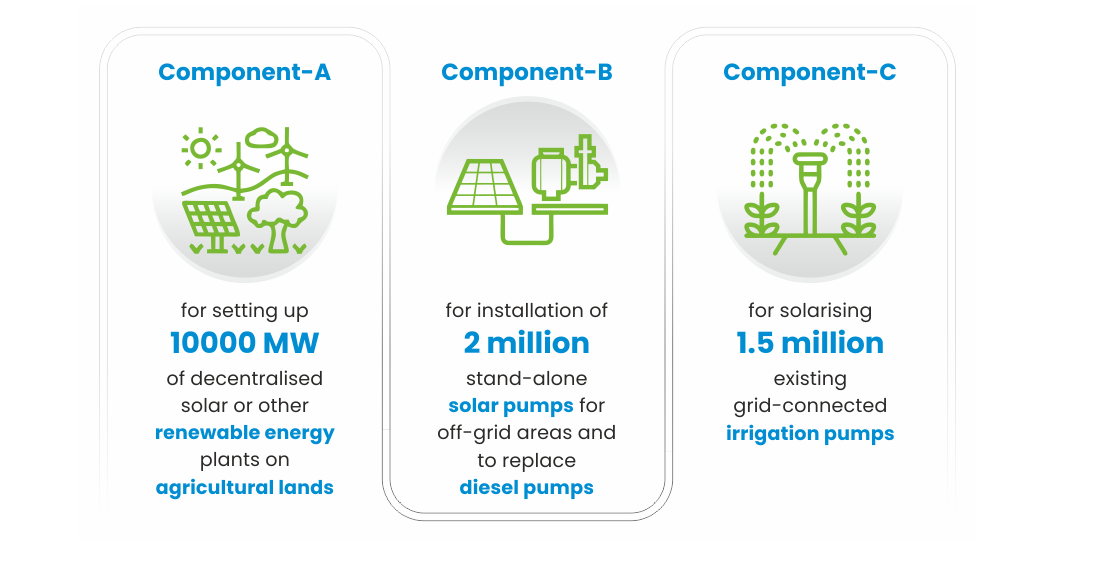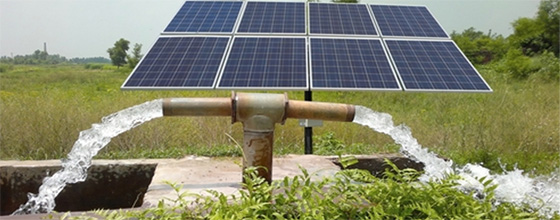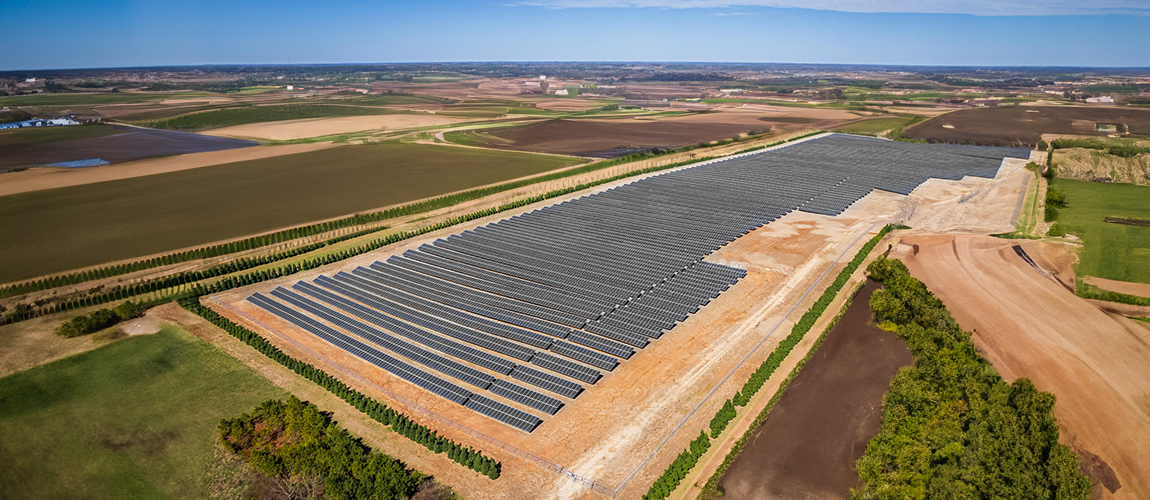Agricultural power subsidies represent a significant financial strain on State DISCOMS, with aggregate subsidies nearly doubling over the past five years to exceed Rs 1 Lakh crore. In India, agricultural power usage accounts for approximately 20 percent of the country’s total electricity consumption, and this power is often provided either for free or at heavily subsidized rates, costing DISCOMs between Rs. 6 to Rs. 8 per unit to supply. In states where agricultural power is charged at nominal rates, the revenue generated constitutes only 5 to 7 percent of the total cost.
India is experiencing a sharp rise in energy consumption, fueled by both economic growth and rapid population increase. Among the various industries witnessing growth, agriculture is projected to reach a value of US$ 24 billion by 2025. According to the First Advance Estimates for FY 2023-24 (Kharif only), the total food grain production in India is estimated at 149.92 million tonnes. These numbers also indicate increasing stress on the system to scale up the power infrastructure.
The World Bank predicts that India will face unprecedented and widespread heatwaves more frequently. Additionally, it anticipates that dry years will become even drier, while wet years will see more intense rainfall. This situation will increase the reliance on groundwater and consequently on groundwater pumps. Agriculture consumes about 20% of India’s total electricity, primarily for irrigation. For farmers using grid-connected water pumps, especially in the summer, frequent power cuts during the day cause significant frustration, while power is often available a night when it’s less useful. As a result, farmers are forced to depend on diesel pump sets for irrigation during the day. With the cost of diesel increasing, even diesel pump sets have started putting significant pressure on farm income.
On the environmental front, diesel pumps produce significant amounts of smoke and particulate matter, creating environmental and health concerns.
In contrast, solar pumps provide a reliable and efficient alternative. Once installed, solar pumps operate seamlessly, especially during the sunny summer months when irrigation is most needed. They eliminate the stress of power outages, the need for diesel, and the associated high costs and maintenance issues. Solar pumps are also easy to maintain, making them an ideal choice for farmers.
The PM-KUSUM (Pradhan Mantri Kisan Urja Suraksha evam Utthaan Mahabhiyan) Scheme provides a significant boost to the adoption of solar pumps. This initiative aims to enhance energy security for Indian farmers while increasing the share of non-fossil-fuel energy sources. Through this scheme, individual farmers are supported in installing standalone solar agriculture pumps of up to 7.5 HP capacity in off-grid areas. The goal is to install 2 million pumps by March 2026. Under the scheme, farmers only need to cover 40% of the total cost, with up to 30% of that amount eligible for bank financing.
Going beyond the ambit of solar pumps, the PM-KUSUM scheme also pushes for decentralized solar at multiple levels.
The PM Kusum scheme is structured around three primary components

Decentralized Grid Connected Solar Power Plants (Component-A)
This component enables farmers, cooperatives, panchayats, and Farmer Producer Organizations (FPOs) to establish small solar power plants on barren or cultivable lands. The electricity generated is purchased by Distribution companies (DISCOMs) at tariffs regulated by State Electricity Regulatory Commissions.
Installation of Standalone Solar Powered Agriculture Pumps (Component-B)
This aspect of the scheme supports the replacement of diesel pumps with solar-powered alternatives, aimed at reducing irrigation costs and environmental impact. Priority assistance, including subsidies and financing options, is provided to small and marginal farmers, particularly in off-grid areas.
Solarisation of Agriculture Feeders (Component-C)
This component focuses on integrating solar power plants into agricultural feeders, providing consistent daytime electricity for irrigation needs. The initiative includes subsidies aimed at lowering operational expenses and advancing sustainable energy solutions in agriculture.
Decentralized Solar Systems Holds Immense Potential to Benefit Rural India And Its Economy In Several Ways
Enhancing the Rural Economy
Projects like PM-KUSUM promote the installation of solar power plants on idle lands (Component A) and encourage decentralized solar power generation, creating new income opportunities for rural farmers. Leasing unused lands for solar power not only boosts farmers’ revenue streams but also revitalizes economic activity in rural communities.
Cost Reduction For Farmers
Introducing solar pumps (Component B) helps farmers cut operational costs. Moving away from traditional grid electricity or diesel pumps to solar alternatives can substantially lower energy expenses, enhancing agricultural profitability for farmers and boosting the rural economy.
Energy Security
By solarizing grid-connected pumps (Component C), farmers achieve energy independence, generating their electricity. This reduces reliance on external power sources and addresses challenges related to unreliable electricity supply in rural areas. Reliable energy access is essential for enhancing agricultural productivity and overall economic performance.
Sustainable Initiatives and Environmental Footprint
As India pursues its clean energy objectives, PM-KUSUM emerges as a cornerstone in fostering sustainable practices. The extensive integration of solar technology reduces dependence on non-renewable energy sources, leading to a reduction in carbon emissions. This supports global environmental targets and establishes India as a conscientious and sustainable global participant.
Employment Generation and Skill Enhancement
The implementation of solar power projects, including the installation of solar power plants and pumps, generates employment opportunities in the renewable energy sector. The ongoing need for maintenance and operation of these systems creates a demand for skilled labor, promoting skill development in rural areas. This helps build a workforce adept at supporting the expanding renewable energy industry.
Conclusion
A major benefit of solar energy is its capacity to decentralize energy systems, reducing reliance on centralized grid infrastructure. In rural areas with limited or unreliable grid connectivity, decentralized solar power systems like microgrids and off-grid installations are essential for meeting local energy demands. These community-owned solutions enhance energy access, foster self-sufficiency, and increase resilience, especially during grid outages.
In addition to the socio-economic benefits, harnessing solar energy is the key to sustainable development. Unlike traditional fossil fuel-based power generation, solar energy is clean and produces no greenhouse gases or air pollutants. By adopting solar energy, India can reduce its carbon footprint, combat climate change, and support global initiatives for a greener and more sustainable future.
About LUBI Electronics
LUBI Electronics is a leading company in India, exhibiting expertise in the automation, solar, and control panel industry.
Our solar offerings include best-in-class solar modules, solar pumps, solar pump controllers and solar inverters.
For more information on our offerings, please reach out to us at lubi@lubielectronics.com.












